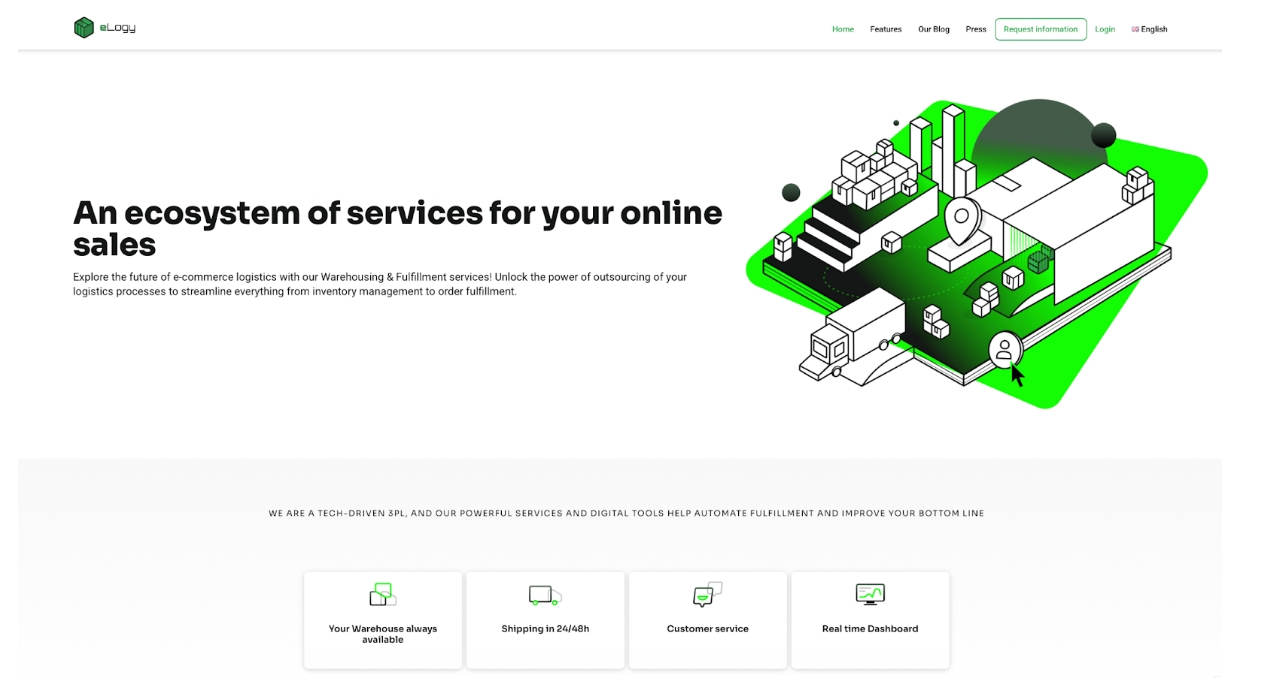Try Zipchat in Action!
Enter your store URL to see how Zipchat would behave.

Affiliate marketing is a great way for beginners to earn money online by promoting products and earning commissions. This article will guide you through essential strategies to kickstart your affiliate marketing journey, helping you understand the basics, choose the right niche, create valuable content, and more. Whether you're starting from scratch or looking to improve your existing efforts, these tips will set you on the path to success.
Key Takeaways
- Affiliate marketing lets you earn money by promoting products without holding inventory.
- Choosing a niche that interests you can make it easier to create content and connect with your audience.
- Creating helpful and engaging content is key to attracting visitors and making sales.
- Building trust with your audience is crucial for successful affiliate marketing.
- Tracking your performance helps you adjust strategies for better results.
Understanding Affiliate Marketing Basics
What is Affiliate Marketing?
Affiliate marketing is a way for you to earn money by promoting products or services. When you recommend something and someone buys it through your link, you earn a commission. It’s like being a salesperson, but you don’t work for the company. Instead, you get rewarded for bringing in new customers.
How Does Affiliate Marketing Work?
Here’s a simple breakdown of how it works:
- Choose a product you want to promote.
- Search for the product’s affiliate program online.
- Sign up for the program to get your special link.
- Share that link with your audience.
- When someone buys through your link, you earn a commission.
Common Terms in Affiliate Marketing
Understanding some key terms can help you navigate the affiliate marketing world:
- Affiliate: You, the person promoting the product.
- Merchant: The company selling the product.
- Commission: The money you earn for each sale made through your link.
- Cookie: A small file that tracks users who click your link.
Remember, affiliate marketing can be a great way to earn extra income, but it requires effort and strategy to succeed. Stay focused and keep learning!
Choosing the Right Niche for Affiliate Marketing

Identifying Your Interests and Strengths
Choosing a niche is all about finding what you love. Pick something that excites you! This will make it easier to create content and connect with your audience. Think about:
- Your hobbies
- Skills you have
- Topics you enjoy learning about
Researching Market Demand
Once you have a few ideas, check if people are interested in them. You can use tools like Google Trends to see what’s popular. Look for:
- Growing interest in your niche
- Keywords with high search volume
- Communities or forums discussing your niche
Evaluating Competition
Not all niches are created equal. Some are crowded, while others are wide open. Find a balance! You want a niche that has:
- Moderate competition
- Room for your unique voice
- Potential for growth
Remember, the right niche can set you up for success in affiliate marketing. Take your time to explore and find what fits you best!
Finding and Joining Affiliate Programs

Popular Affiliate Networks
When you're starting out in affiliate marketing, finding the right programs is key. Here are some popular networks you can explore:
- Amazon Associates: Great for physical products.
- ShareASale: Offers a variety of brands.
- ClickBank: Focuses on digital products like eBooks and courses.
- CJ Affiliate: Known for its strong brand partnerships.
- Rakuten Advertising: Connects you with big-name brands.
Criteria for Selecting Affiliate Programs
Choosing the right affiliate program can make a big difference. Here are some things to consider:
- Reputation: Does the brand have a good reputation?
- Commission Rate: Look for programs that offer competitive rates.
- Earnings Per Click (EPC): Higher EPC means better potential earnings.
How to Apply and Get Approved
Getting started is simple. Here’s how:
- Research: Find programs that fit your niche.
- Apply: Fill out the application form on the program’s website.
- Wait for Approval: Some programs approve instantly, while others may take time.
Remember, the best affiliate programs align with your audience's interests. This way, you can promote products that truly benefit them.
By focusing on these aspects, you can successfully find and join affiliate programs that will help you grow your marketing efforts. Don't forget to check out the 16 best affiliate marketing programs for beginners in 2024 to kickstart your journey!
Creating Valuable Content for Your Audience

Creating content that resonates with your audience is key to your success in affiliate marketing. You want to provide real value that keeps them coming back for more. Here’s how you can do it:
Types of Content That Convert
- Blog Posts: Share insights, tips, and personal experiences.
- Videos: Create engaging tutorials or product reviews.
- Social Media Posts: Use platforms like Instagram or TikTok to connect with your audience.
SEO Best Practices for Affiliate Marketing
- Keyword Research: Find out what your audience is searching for.
- On-Page SEO: Optimize your content with relevant keywords.
- Quality Backlinks: Build links from reputable sites to boost your credibility.
Using Social Media to Promote Content
- Engage with Followers: Respond to comments and messages.
- Share Valuable Content: Post links to your blog or videos.
- Collaborate with Influencers: Partner with others in your niche to reach a wider audience.
Remember, the goal is to build trust and relationships with your audience. When they see you as a reliable source, they’re more likely to click on your affiliate links.
By focusing on creating valuable content, you can effectively drive traffic and increase your affiliate sales. Don't forget to leverage tools like an AI Chatbot to enhance user interaction and engagement!
Building and Growing Your Audience
Strategies for Driving Traffic
To build your audience, you first need to attract them. Here are some effective strategies:
- Create Valuable Content: Focus on producing content that resonates with your audience. This could be blog posts, videos, or infographics that address their needs.
- Utilize Social Media: Share your content on platforms where your audience hangs out. Engage with them through comments and shares.
- Leverage Email Marketing: Build an email list to send newsletters and updates directly to your audience. This keeps them informed and engaged.
Engaging with Your Audience
Engagement is key to building a loyal audience. Here are some tips:
- Be Personable: Share bits of your life and personality. This helps your audience relate to you as a real person.
- Tell Stories: Use storytelling to connect with your audience. It makes your content relatable and memorable.
- Practice Random Acts of Kindness (RAOK): Small gestures, like responding to comments, can leave a lasting impression.
Leveraging Email Marketing
Email marketing is a powerful tool for maintaining relationships with your audience. Here’s how to make the most of it:
- Segment Your List: Tailor your messages based on the interests of different audience segments.
- Provide Value: Share tips, exclusive content, or special offers to keep your audience engaged.
- Encourage Interaction: Ask questions or invite feedback to foster a two-way conversation.
Building a strong relationship with your audience takes time, but it’s worth it. Trust is the foundation of any successful affiliate marketing strategy.
By focusing on these strategies, you can effectively build and grow your audience, leading to better engagement and ultimately, more success in your affiliate marketing efforts.
Optimizing Your Affiliate Links
Best Practices for Placing Links
When it comes to placing your affiliate links, strategic positioning is key. Here are some tips:
- Multiple placements: Include links at the beginning, middle, and end of your content.
- Link images: Make product images clickable to your affiliate links.
- Natural integration: Ensure links fit seamlessly into your content without feeling forced.
Using Link Tracking Tools
Tracking your affiliate links is crucial for understanding what works. You can use tools like:
- Pretty Links
- Bitly
- Google Analytics
These tools help you see where clicks are coming from and which links are performing best.
A/B Testing for Link Performance
A/B testing can help you find the most effective link placements. Here’s how to do it:
- Create two versions of your content with different link placements.
- Monitor clicks on each version.
- Analyze results to see which version performs better.
Remember, optimizing your affiliate links is about making it easy for your audience to click through. The more accessible your links are, the better your chances of conversion.
By following these strategies, you can enhance your affiliate marketing efforts and maximize your potential earnings. Don't forget to keep track of your link performance to continuously improve your approach!
Analyzing and Improving Performance
Key Metrics to Track
To really understand how your affiliate marketing is doing, you need to keep an eye on some important numbers. Here are a few key metrics:
- Traffic Sources: Where are your visitors coming from?
- Conversion Rates: How many visitors are actually making a purchase?
- Click-Through Rates: How often are people clicking on your affiliate links?
Tools for Performance Analysis
Using the right tools can make a big difference in how you analyze your performance. Here are some popular options:
- Google Analytics: Great for tracking website traffic and user behavior.
- Affiliate Network Dashboards: Most networks provide insights into your performance.
- Social Media Analytics: Check how your posts are performing on platforms like Facebook and Instagram.
Strategies for Continuous Improvement
Improving your performance is an ongoing process. Here are some strategies to consider:
- Test Different Approaches: Experiment with different types of content and see what works best.
- Monitor Your Results: Keep track of your metrics regularly to spot trends.
- Learn from Mistakes: If something doesn’t work, figure out why and adjust your strategy.
Remember, analyzing your performance is key to growing your affiliate marketing business. The more you know, the better you can adapt and succeed!
Compliance and Ethical Considerations
Understanding FTC Guidelines
When you dive into affiliate marketing, it’s crucial to know the FTC guidelines. These rules help ensure that you’re being honest with your audience. You need to clearly state when you’re using affiliate links. This transparency builds trust and keeps you compliant.
Disclosing Affiliate Relationships
Always let your audience know when you’re promoting products for which you earn a commission. This can be as simple as adding a note at the beginning of your content. For example:
- "Some links in this post are affiliate links. If you click and make a purchase, I may earn a commission."
- "I only recommend products I believe in and have used myself."
- "Your support helps me keep this site running!"
Maintaining Transparency with Your Audience
Honesty is key in affiliate marketing. If a product doesn’t meet expectations, be upfront about it. If you realize a product isn’t a good fit for your audience, don’t hesitate to say so. This approach not only protects your reputation but also strengthens your relationship with your audience.
Remember, your audience trusts you to provide valuable recommendations. If you lose that trust, it can be hard to regain.
Highlighting the Zipchat AI Affiliate Program
For instance, if you’re promoting the Zipchat AI affiliate program, make sure to mention that you earn a 15% recurring commission for 18 months. This kind of clarity helps your audience understand what they’re getting into and why you’re recommending it.
By following these guidelines, you can create a positive experience for both you and your audience while navigating the world of affiliate marketing.
Advanced Affiliate Marketing Strategies

Leveraging Paid Advertising
Paid advertising can be a game-changer for your affiliate marketing efforts. By investing in ads, you can reach a larger audience quickly. Here are some effective platforms to consider:
- Google Ads: Target specific keywords to attract potential buyers.
- Facebook Ads: Utilize detailed targeting options to reach your ideal audience.
- Instagram Ads: Showcase products visually to engage users.
Building Partnerships and Collaborations
Collaborating with other marketers or brands can amplify your reach. Consider these strategies:
- Joint Webinars: Share expertise and promote each other's products.
- Guest Blogging: Write for each other's blogs to tap into new audiences.
- Affiliate Networks: Join networks to connect with other affiliates and brands.
Exploring Emerging Trends in Affiliate Marketing
Staying updated with trends is crucial. Here are some trends to watch:
- Video Content: Video marketing is on the rise; consider creating product reviews or tutorials.
- Influencer Marketing: Partner with influencers to reach their followers.
- AI Tools: Use AI for analytics to understand your audience better and refine your strategies.
Remember, the key to success in affiliate marketing is to keep learning and adapting.
By implementing these advanced strategies, you can enhance your affiliate marketing game and potentially increase your earnings. Don't forget to monitor your performance and adjust your tactics as needed. Analytics will help you understand what works and what doesn't, so you can focus on strategies that yield results!
Avoiding Common Mistakes in Affiliate Marketing
Overcoming Beginner Pitfalls
When you start affiliate marketing, it’s easy to make mistakes. Here are some common ones to avoid:
- Promoting products that don’t fit your audience. Make sure the products you choose actually help your audience.
- Not paying attention to the quality of your audience’s experience. Always check if they’re satisfied with what you recommend.
- Being dishonest about a product. Transparency is key; your audience will appreciate your honesty.
Learning from Experienced Marketers
You can learn a lot from those who have been in the game longer. Here are some tips:
- Study successful marketers. See what they do right and try to apply those strategies.
- Avoid the get-rich-quick mindset. Affiliate marketing takes time and effort.
- Build genuine relationships with your audience. This will help you earn their trust.
Staying Updated with Industry Changes
The affiliate marketing world is always changing. Here’s how to keep up:
- Follow industry news and trends.
- Join affiliate marketing forums or groups.
- Attend webinars or workshops to learn from experts.
Remember, affiliate marketing is a journey. Mistakes are part of the learning process, so don’t be too hard on yourself. Just keep improving and adapting!
Scaling Your Affiliate Marketing Business
Automating Processes
To grow your affiliate marketing business, automation is key. Here are some ways to automate:
- Use email marketing tools to send newsletters and promotions.
- Schedule social media posts in advance.
- Implement chatbots for customer inquiries.
Outsourcing Tasks
As your business expands, consider outsourcing tasks to save time:
- Hire freelancers for content creation.
- Use virtual assistants for administrative work.
- Collaborate with graphic designers for visuals.
Expanding into New Niches
Don’t be afraid to explore new areas. Here’s how:
- Research trending topics in ECommerce.
- Test affiliate programs related to your interests.
- Use platforms like Shopify to find new products.
Scaling your affiliate marketing business takes time and effort, but with the right strategies, you can achieve great results.
By focusing on these strategies, you can effectively scale your affiliate marketing business and reach a wider audience. Remember, it’s all about providing value to your audience while growing your income!
Conclusion
In summary, affiliate marketing offers a great opportunity for beginners to earn money online. By following the strategies outlined in this article, you can start your journey with confidence. Remember, building trust with your audience is key. Take your time to learn and adapt as you go. With patience and effort, you can turn your affiliate marketing efforts into a successful venture. So, take the first step today and explore the exciting world of affiliate marketing!
Frequently Asked Questions
What is affiliate marketing?
Affiliate marketing is when you promote a company's products and earn money for each sale made through your referral.
How do I start affiliate marketing?
To start, pick a niche, choose a platform, find affiliate programs, create helpful content, and build an audience.
How much can beginners earn in affiliate marketing?
Beginners can earn commissions ranging from 10% to 30% on sales, which can add up to a few hundred dollars a month.
What are some popular affiliate programs?
Some popular affiliate programs include Amazon Associates, ClickBank, and CJ Affiliate.
How do I choose the right niche?
Think about your interests, research what people are looking for, and check how many competitors are in that area.
What type of content works best for affiliate marketing?
Content like reviews, comparisons, and how-to guides can attract readers and encourage them to click on your affiliate links.
What are some common mistakes to avoid?
Avoid promoting too many products at once, not disclosing your affiliate links, and not tracking your performance.
How can I grow my audience?
You can grow your audience by sharing your content on social media, engaging with your readers, and using email marketing.








